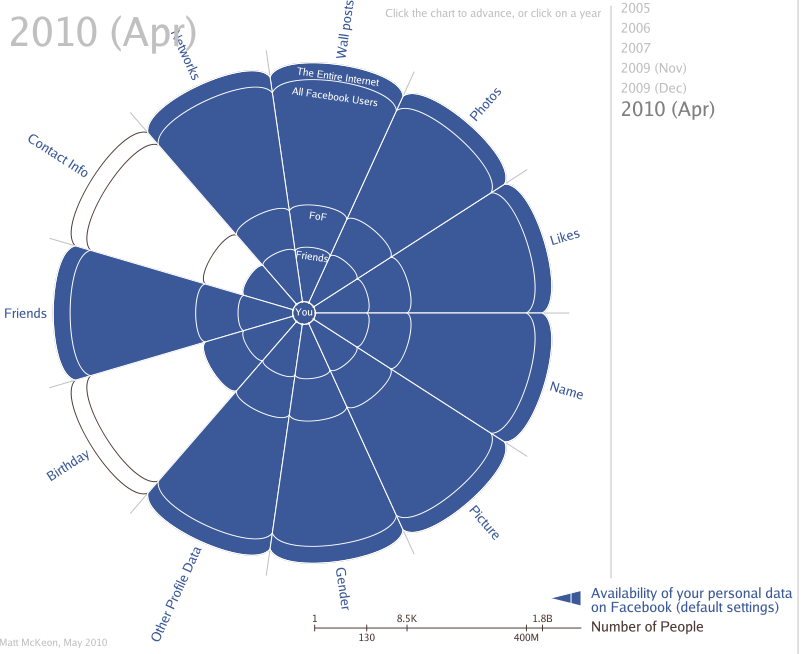 I recently wrote about the Apple ITSC events that I was lucky enough to have been a part of. They’re all over now, and after having participated at ITSCs on the Gold Coast, Adelaide, Perth and Melbourne (as well as the one in my home town of Sydney) I have to say that I thoroughly enjoyed being involved in them. One of the best aspects of the way ITSC was run this year was the way they leveraged the unconference concept and tried to break away from the traditional “sit and git” model of learning at conferences. The unconference model is a good model for learning because it attempts to meet people’s needs for knowledge, allowing those with expertise to share it and those with questions to ask them. The lack of rigid structure is what makes it work along with the fact that you learn more when you get actively involved in learning about things that are directly relevant to you.
I recently wrote about the Apple ITSC events that I was lucky enough to have been a part of. They’re all over now, and after having participated at ITSCs on the Gold Coast, Adelaide, Perth and Melbourne (as well as the one in my home town of Sydney) I have to say that I thoroughly enjoyed being involved in them. One of the best aspects of the way ITSC was run this year was the way they leveraged the unconference concept and tried to break away from the traditional “sit and git” model of learning at conferences. The unconference model is a good model for learning because it attempts to meet people’s needs for knowledge, allowing those with expertise to share it and those with questions to ask them. The lack of rigid structure is what makes it work along with the fact that you learn more when you get actively involved in learning about things that are directly relevant to you.
If you ever want to run an unconference, there is plenty of advice online about how you might do it, but when it’s all boiled down, the “rules” for an unconference could be summarised as…
- The people who come are the best people who could have come.
- Whatever happens is the only thing that could have happened.
- It starts when it starts.
- It’s over when it’s over.
- The Law of Two Feet (“If you are not learning or contributing to a talk or presentation or discussion it is your responsibility to find somewhere where you can contribute or learn”).
My first real unconference experience happened in Christchurch NZ last year at the ULearn event. It was organised – or rather, unorganised – by a small group of volunteers, and it’s notable feature was the lack of any rigid structure. A few tables were set up, people joined in conversations taking place at the tables and then just moved around the room whenever they felt they wanted to move on. We had some really great conversations about all manner of things that really made a difference to what I took away from the main conference.
MCloser to home, my partner Linda was recently part of an international team of people who planned an unconference event for the IABC World Conference held recently in Toronto, Canada. So I’ve seen first hand just what’s involved in planned a great unconference event. While there is definitely a lot of planning involved, on the actual day it works best if there is a great deal of flexibility in how people interact with the event. People give what they can give, and they take what they can take. That’s the spirit of an unconference.
Which brings me to the main point of this post. I spent most of today at MoodleCamp Sydney, an unconference-style event for people interested in the open source learning management system called Moodle. It was organised by Sydney Moodler Jason Hando, a guy I’ve known online for quite a few years, although we only met in person recently for the first time. I got an email from Jason inviting me to the MoodleCamp event and I signed up right away, with an intention to not only attend but to contribute something from my own school’s journey with Moodle over the last few years. Jason also emailed me a few days before the event and asked for some extra assistance with the design and creation of some certificates of attendance for the participants, as well as asking if I’d help out with facilitating one of the rooms on the day. Naturally, wanting to be helpful, I agreed to both.
So today, I turned up at the Sydney Distance Education High School at Wolloomooloo to join my fellow Moodlers to learn lots of cool stuff about Moodle. For a variety of reasons the event didn’t really hit the mark for me, partly because the organisation of it was not particularly like an unconference, but mostly because of a very public falling out with Jason Hando over an issue in which I thought he was being particularly obnoxious and belligerent, and which escalated into a very ugly situation for everyone.
The first concern was with the way the event was organised. And ok, maybe I’m being picky, but for an event that was constantly being promoted (positively) as “unorganised”, “unofficial”, “ad-hoc”, etc, right through to the way participants were being referred to as “unparticipants”, when push came to shove it was just as traditional as a normal conference event. I’m sure Jason had put a lot of time and effort into making the event happen, including providing a rather good looking lunch (I never ate any of it, so I don’t know how it tasted, but it looked good). The venue as very nice, and the potential was there for it to be a really good event. However, as the day unfolded it turned out to be not so much an unconference, but rather just a series of short traditional presentations, mostly given in a fairly transmissive mode from speaker to audience.
The day was split into 20 minute sessions, and while I understood the reasoning for this, I didn’t think it was really in the spirit of the way an unconference is meant to work… it was simply too structured. Just as I found myself engaging with ideas that were raised, it was time to move on to the next session. Most of the speakers (including myself) were just trying to get through all they wanted to say in their 20 minute slot, so there wasn’t nearly enough time for questions, conversations and actual sharing. I felt that just as things got interesting, the “bell would go” and it was time to move to the next lesson. On the flipside, some sessions would drag on past the point at which I was finding them useful, but we kept going anyway because our 20 minutes wasn’t up yet… so much for the Law of Two Feet. For an event that was constantly promoted as being somewhat counter-cultural, it was surprisingly traditional. Even the layout of the room was surprisingly traditional… the main part of the room was set up with rows of chairs facing the front, where “the front” was a stage with a lectern on it, a projector screen and plenty of PowerPoint/Keynote slides full of bulleted text. The two breakout rooms were also set up with rows of chairs facing the front, with a screen and a place for “the teacher” to talk to “the students”. The best parts of the day were the breaks between sessions where the conversation flowed freely and people were sharing ideas and showing each other things on their laptops… but in an unconference, this is what the sessions are supposed to feel like, not just the breaks between the sessions.
The other big issue I had with the day (and which possibly coloured my entire experience of the event) was the very public dressing-down I got from Jason Hando over an issue that he and I did not see eye to eye on. It’s a long story and I don’t want to embarrass the other person involved, but the belligerence and unreasonableness from Jason was completely over the top. Another participant arrived at the event – someone I know quite well and whom I consider a friend – and apparently Jason took exception to both his presence at the event and what he planned to present. This person is extremely active and well known in the Moodle community, and has a reputation for being generous with both his time and his considerable expertise. To contribute to the event, as well as running a very valuable session, he wanted to donate some Moodle books as prizes and also to host a quick Skype call to a surprise guest Moodler. I’m sure that both of these things would have been exceptionally well received by everyone at the event.
Instead of welcoming this person and valuing the great contribution they might be able to make to MoodleCamp, Jason saw this person as a threat and told them to leave and that he was not welcome. When I found out what happened I tried to act as a voice of reason to settle the disagreement, and I managed to get both parties in the other room to try and sort out what should have been a minor misunderstanding. Instead, I got a hostile, antagonistic diatribe from Jason about why this person’s motives (which I KNOW were pure) were unacceptable to him. Jason was upset that this person had not contacted him in advance to advise that there would be free books and a Skype call taking place. I explained that I disagreed, that the whole point of an unconference was to be spontaneous, and that no one should have to “clear things” with the organisers if they were obviously in the interests of all participants. Jason expressed concern that this other person would somehow try to commercialise “his” event and he took exception to the fact that this person wore a shirt with a Moodle logo on it… he somehow saw this as a indication that someone from Moodle was “checking up” on him. (For the record, the shirt was one that any active member of the Moodle community is entitled to wear). When I disagreed with Jason’s view, he started ranting about how I was “in bed with” this other person and that I was clearly part of the problem. The illogical nature of Jason’s reasoning got more and more surreal, and the conversation got more and more heated. When we were finally joined by Jason’s offsider Danielle, who also spouted the same unreasonable nonsense as Jason, I threw my hands up and exclaimed in absolute frustration “You’ve got to be fucking kidding!” Jason and Danielle both immediately switched the focus of the issue to the use of the word “fuck” and started carrying on about how offended they were because I swore at them. Just to be clear, I didn’t swear AT them, I swore NEAR them. Danielle went off her head about it, and her and Jason started telling me I wasn’t welcome and that I had to leave.
To say I was pissed off is a massive understatement. I was pissed off at the ludicrous argument that Jason proposed as to why giving away books or wearing a shirt with a particular logo on it was inappropriate at an unconference. I was pissed off that he had such unfounded, unreasonable suspicions about the motives of one of the most generous people I know. I was pissed off that he was acting like a completely spoiled child who wanted to take an “it’s my unconference and I’ll do whatever I want” attitude to it. And I was pissed off that he was taking the democratic, free speech ideals of the unconference concept and micromanaging and filtering it in a way that would make even Steve Jobs cringe.
So, having been asked to leave, I left. But as I walked back to the car, I thought to myself “Hang on, I came here to learn. I’m not going to let some upstart with a bad attitude ruin that”. So I went back into the room and sat down. By this point, Jason was standing on the stage, welcoming people and thanking everyone who helped make the day happen. He then had the audacity to list me as one of his helpers (which, until that point, I was) then he paused, pointed a finger at me from the stage and said “Didn’t I just tell you to leave?”
“Yeah, but I came back.”
“I want you to leave. You’re not welcome.” Then he addressed the entire audience who were present and relayed his distorted version of what happened in the back room. Not the whole story mind you, just the fact that I said “fuck”. In fact, according to Jason I said it 5 or 6 times, which is actually untrue. He also said that I directed the swearing at Danielle, which was also untrue.
So he then asked me, publicly from the stage, to leave. I said no. He said he would not continue talking until I left and he walked away from the microphone. I said I was staying. Long pause. I then suggested that he stop carrying on like a belligerent child and move on, but he refused. It was embarrassing. Not for me. For him. His puerile behaviour made him look like a complete jackass, but I was certainly not impressed with the very public airing of our dirty laundry. To have a disagreement with someone is one thing. To have it escalate into an argument is unfortunate, but we could have dealt with it. But to air that argument in public, in front of a room full of people, giving only his side of the story, and to make it seem like the core of the issue was because I used a “bad word” is quite another thing. In the end, I made it clear that I had no intention of leaving, and he eventually continued, but only after demanding a public apology for what he saw as the issue. He was embarrassingly immature in front of the whole room of people.
Let’s be clear. The issue was not the swear word. The real issue was Jason’s totally unreasonable attitude towards a conference participant who he clearly had a longstanding beef with. The real issue was the fact that, even when he dragged me in as an “adjudicator”, when he didn’t get the agreement from me that he wanted, he turned nasty about it. The real issue was that he acted like this was “his” event, and not the participants’ event. The real issue was the “right of veto” nonsense he tried to pull when he felt that someone else might pick up some consultancy work as a result of the day (something which is very clearly in competition with his own business goals) The real issue was the massive dummy spit he had when people didn’t share his views, to the point where he felt he could order them to leave. Jason’s business is doing Moodle consultancy and there’s no doubt in my mind that MoodleCamp was a way of expanding his own customer base. Reading between the lines, the thought of someone else coming along who might be seen as having more expertise, and therefore being a threat to his business, was too much for him and he snapped.
For the record, I approached Danielle afterwards and offered my apology if I caused her offence, and pointed out that my frustration was not directed at her. I also, despite the fact that I really didn’t feel much like making any contributions at all after that, still presented a session since that’s part of the reason I came in the first place. And as for the “free lunch”, maybe it’s just cutting off my nose to spite my face, but there was no way I was going to take anything from someone who feels it’s ok to publicly embarrass me like that.
I don’t normally take my disagreements public but since that’s what Jason decided to do from the stage, I’m not going to take it lying down. As another delegate confided to me later, “I can’t believe what an idiot he was to do that. Of all the people to do that to, he should know better than to do it to you.” Publicly embarrassing a blogger? Bad idea.
The comments are open. I’m quite happy to get an apology from Jason. Otherwise, bring it on baby, because I’m filthy dirty about the way I was treated.

 I remember back in the mid 90s I started to hear more and more about this upstart operating system for computers called Linux. It was an alternative to Windows and Mac, and was based on an open source project started in 1991 by a student in Helsinki named
I remember back in the mid 90s I started to hear more and more about this upstart operating system for computers called Linux. It was an alternative to Windows and Mac, and was based on an open source project started in 1991 by a student in Helsinki named  But back to Linux for a moment. Maybe it’s old news to some people, but I’ve just lately discovered and have become quite impressed with a Linux distribution called
But back to Linux for a moment. Maybe it’s old news to some people, but I’ve just lately discovered and have become quite impressed with a Linux distribution called 